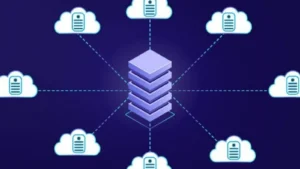The Enduring Trend of Cloud-Based Backup Systems for Data Security

In the digital age, data is one of the most valuable assets for businesses and individuals alike. Ensuring the security and availability of this data is paramount, and cloud-based backup systems have emerged as a crucial solution. As technology continues to evolve, these systems are expected to remain a prominent trend in data security for several compelling reasons.
Enhanced Security Measures
One of the primary reasons cloud-based backup systems will continue to be in vogue is their robust security features. Cloud service providers invest heavily in security infrastructure, implementing advanced encryption, intrusion detection systems, and multi-factor authentication. These measures ensure that data is protected both during transmission and while at rest. Moreover, cloud providers employ regular security audits and comply with stringent regulatory standards, offering a level of security that many individual organizations might find challenging to achieve independently.
Disaster Recovery and Business Continuity
Cloud-based backups are integral to disaster recovery plans. They ensure that data is not only backed up but also accessible in the event of a catastrophe, such as natural disasters, cyberattacks, or hardware failures. Traditional backup methods, such as on-premises servers, are vulnerable to physical damage and localized disruptions. In contrast, cloud backups are stored in geographically dispersed data centers, ensuring that data can be quickly restored from an unaffected location, thereby maintaining business continuity.
Scalability and Flexibility
The scalability of cloud-based backup systems is another reason for their sustained relevance. Businesses today generate vast amounts of data, and their storage needs can change rapidly. Cloud services offer the flexibility to scale storage resources up or down based on demand, eliminating the need for substantial upfront investment in physical infrastructure. This scalability ensures that businesses can adapt to their changing data needs without compromising on security or incurring excessive costs.
Cost-Effectiveness
Cost efficiency is a significant factor driving the adoption of cloud-based backup systems. Traditional backup solutions often require significant capital expenditure on hardware, software, and maintenance. Cloud backups, however, operate on a subscription-based model, converting capital expenses into operational expenses. This model not only reduces the financial burden on organizations but also allows them to pay only for the storage and services they use, making it a more economical option.
Automatic and Continuous Backups
Manual backup processes are time-consuming and prone to human error. Cloud-based backup systems, on the other hand, offer automatic and continuous backups, ensuring that the most recent data is always protected without requiring manual intervention. This automated approach minimizes the risk of data loss due to missed backups and ensures that data is consistently up-to-date.
Improved Accessibility and Collaboration
With the increasing trend of remote work and global collaboration, the accessibility of cloud-based backups is invaluable. These systems allow authorized users to access data from anywhere with an internet connection, facilitating seamless collaboration across different geographical locations. This remote accessibility ensures that data remains secure and available to teams regardless of their physical location, promoting productivity and operational efficiency.
Advanced Threat Detection and Mitigation
Cloud service providers leverage sophisticated technologies like artificial intelligence and machine learning to detect and mitigate potential threats in real time. These technologies can identify unusual patterns of behavior, flag potential security breaches, and initiate automatic responses to contain threats. This proactive approach to threat detection and mitigation provides an additional layer of security that enhances the overall protection of data stored in the cloud.
Compliance with Data Protection Regulations
Regulatory compliance is a critical aspect of data security, especially with the increasing number of regulations like GDPR, HIPAA, and CCPA. Cloud-based backup providers ensure compliance with these regulations by implementing robust data protection measures and maintaining transparent data handling practices. This compliance helps organizations avoid hefty fines and legal repercussions associated with data breaches and non-compliance.
Cloud-based backup systems have revolutionized data security by offering enhanced security measures, disaster recovery capabilities, scalability, cost-effectiveness, and advanced threat detection. Their ability to provide continuous, automatic backups and facilitate global accessibility makes them indispensable in today’s digital landscape. As data continues to grow in importance and volume, cloud-based backup systems will remain a key trend, ensuring that data remains secure, accessible, and resilient against potential threats.
Stay ahead with ITBusinessNews – Your trusted source for Technology and Business news. Fast & Precise




